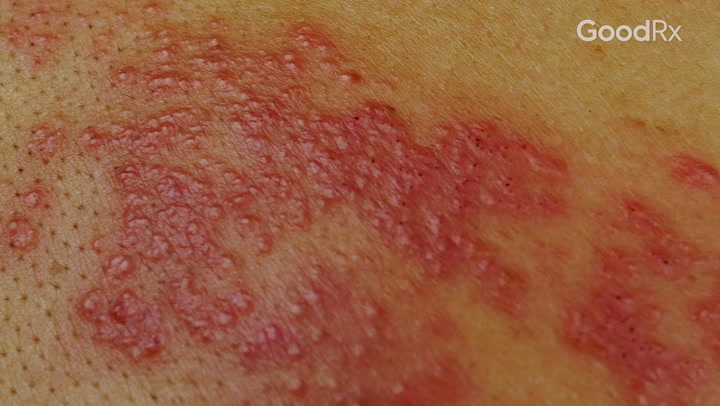
Can You Take Gabapentin for Bipolar Disorder?
Key takeaways:
Gabapentin is a medication that’s used to treat seizures, nerve pain from shingles, and restless leg syndrome.
Despite previous marketing claims, there’s no evidence that gabapentin is a good treatment for bipolar disorder.
The best treatment for bipolar disorder is therapy and a combination of other medications. These include mood stabilizers, anticonvulsants, and antipsychotics.
Access savings on related medications
Table of contents

Gabapentin is one of the 20 most common medications in the U.S. It’s an anticonvulsant medication that treats seizures. But it’s also used to treat many other conditions — both on and off-label. Many of these uses aren’t backed by science though. They’re the result of decades-long, misleading marketing campaigns.
It’s important to note that gabapentin does work well for some conditions. There’s good evidence that it’s helpful for certain types of nerve pain and anxiety.
But what about bipolar disorder (a type of mood disorder)? In recent decades, gabapentin has been promoted and studied as a treatment for bipolar disorder. But the evidence is clear: It’s not an effective treatment for bipolar disorder.
Search and compare options
Read on to learn how gabapentin was marketed for bipolar disorder in the past — and what we know now about gabapentin and bipolar disorder.
Is gabapentin good for bipolar disorder?
No. After decades of research, experts don’t recommend gabapentin as a treatment for bipolar disorder.
The best treatment for bipolar disorder is a combination of other medications. This could be mood stabilizers, other anticonvulsants, and antipsychotics. Examples include lithium, quetiapine (Seroquel), lamotrigine (Lamictal), and more. Therapy can be helpful too.
What does research say about gabapentin for bipolar disorder?
There’s no evidence that gabapentin works for bipolar disorder. This is a misconception fueled by a dishonest ad campaign from the 1990s. The company that made gabapentin (brand name Neurontin) pushed the drug for many uses, including bipolar disorder. Most of these uses weren’t FDA approved. And the company didn’t have any good science to back them up — only weak studies that they paid for themselves.
In 1996, a whistleblower inside the company spoke up. He said the company told workers to encourage doctors to use Neurontin — even when it wasn’t FDA approved. Employees were also told to exaggerate the results of small studies and to hide evidence that showed Neurontin didn’t work or had bad side effects.
This led to legal problems for the companies that made and sold Neurontin. They had to pay a $430 million lawsuit in 2004 for inappropriately promoting off-label uses of gabapentin.
Clinical trials and other research
Since that time, researchers have kept studying gabapentin. But according to literature reviews from 2015, 2021, and again in 2021, there’s no significant evidence that gabapentin works for bipolar disorder. It doesn’t work on its own or as an add-on medication. And, in fact, in some studies gabapentin was actually worse than placebo.
Current expert opinions
Here’s what experts say today about gabapentin and bipolar disorder:
American Psychological Association: Gabapentin has been “largely discredited as a mood stabilizer for bipolar disorder.”
Depression and Bipolar Support Alliance: Gabapentin “was used frequently for treatment of bipolar disorder, but controlled studies found it was no more effective than a placebo.”
American Academy of Child and Adolescent Psychiatry: Gabapentin has “not been shown to effectively treat mania or depression associated with bipolar disorder.”
What’s it like to have bipolar disorder? Three people describe their journey living with bipolar 1 disorder.
Bipolar 1 or bipolar 2? Learn about the similarities and differences between these two types of bipolar disorder.
Six tips for managing your bipolar disorder: Mental health professional and author Jamie Goudeau shares her personal experiences with bipolar disorder — and what she’s learned along the way.
In short, gabapentin isn’t a good choice for treating bipolar disorder. There are other medications that work much better. And there’s growing evidence that gabapentin has significant risks.
What are the side effects of gabapentin?
Just like all medications, gabapentin can cause side effects. For most people, these side effects are mild and include:
Fatigue
Dizziness
Blurred vision
Diarrhea
Arm and leg swelling (edema)
In rare cases, gabapentin can cause more serious problems, including:
Mood changes or suicidal thoughts
Very slow breathing
When used long term, you can also become dependent on gabapentin. This means you may experience withdrawal symptoms after you stop taking it.
Can gabapentin cause mania?
When taken as directed, mania isn’t a typical side effect of gabapentin. But keep in mind: People who misuse gabapentin say it can feel stimulating, like cocaine. They report feeling more talkative, having increased energy, and feeling euphoric. These are symptoms that are similar to mania.
What else is gabapentin used for?
The FDA has approved gabapentin (Neurontin) for:
Another version of gabapentin (Horizant) is approved to treat restless leg syndrome and PHN.
There’s also Gralise, an extended-release version of gabapentin, which is only approved for PHN.
Healthcare professionals also use it off-label for dozens of conditions, like back pain and sleep. Most of these uses don’t have a lot of scientific support. But in some cases, off-label gabapentin can be helpful. For example, there’s some evidence that gabapentin is good for certain types of anxiety and substance use disorders.
What’s the best treatment for bipolar disorder?
The best treatment for bipolar disorder is different for everyone. It’s generally a mix of medication, therapy, and healthy habits. Learn more in our GoodRx guide to bipolar disorder treatment.
Frequently asked questions
It depends. For some people, gabapentin may help within just a couple hours. Other times, you may need to take it for a longer period of time before you see improvements.
No. Gabapentin isn’t an antipsychotic. It’s a type of anticonvulsant (antiseizure) medication.
Anticonvulsant medications are a common treatment for bipolar disorder. FDA-approved options include divalproex (Depakote), lamotrigine (Lamictal), and carbamazepine (Equetro).
These medications help control abnormal electrical activity in your brain. This seems to help prevent and treat the symptoms of bipolar disorder.
No. Gabapentin isn’t a recommended treatment for bipolar 2. Both bipolar 1 and 2 are treated with therapy and other types of medication.
Gabapentin can cause mood changes, and can also increase your risk for suicidal thoughts or behavior. If you experience these changes while taking gabapentin, let your prescriber know immediately.
The bottom line
There are many good medications for bipolar disorder, but gabapentin isn’t one of them. The truth is: There are better medications for managing your condition. If you’d like to learn more about gabapentin, talk to your psychiatrist or primary care provider. They can help you understand the pros and cons of gabapentin, as well as your other options for treatment.
If you or someone you know is having thoughts of suicide, you’re not alone, and help is available. Call the National Suicide Prevention Lifeline at 988, or text “HOME” to 741-741 to reach the Crisis Text Line.
Why trust our experts?


References
American Academy of Child and Adolescent Psychiatry. (2009). Parents’ medication guide for bipolar disorder in children & adolescents.
APA Dictionary of Psychology. (2018). Gabapentin. American Psychological Association.
Berlin, R. K., et al. (2015). Gabapentin therapy in psychiatric disorders: A systematic review. The Primary Care Companion for CNS Disorders.
Calabrese, J. (n.d.). Are there any seizure control medications that have no crossover for use in bipolar treatment? Depression and Bipolar Support Alliance.
Coryell, W. (2023). Overview of mood disorders. Merck Manual Consumer Version.
Fullerton, C. A., et al. (2010). The rise and fall of gabapentin for bipolar disorder: A case study on off-label pharmaceutical diffusion. Medical Care.
Goodman, C. W., et al. (2019). Gabapentinoids for pain: Potential unintended consequences. American Family Physician.
Hong, J. S. W., et al. (2021). Gabapentin and pregabalin in bipolar disorder, anxiety states, and insomnia: Systematic review, meta-analysis, and rationale. Molecular Psychiatry.
Krautkramer, C. J. (2006). Neurontin and off-label marketing. AMA Journal of Ethics.
National Health Service. (2022). Common questions about gabapentin.
Ng, Q. X., et al. (2021). A systematic review of the clinical use of gabapentin and pregabalin in bipolar disorder. Pharmaceuticals.
Peckham, A. M., et al. (2018). Gabapentin for off-label use: Evidence-based or cause for concern? Substance Use: Research and Treatment.
Petersen, M. (2003). Doctor explains why he blew the whistle. The New York TImes.
Smith, R. V., et al. (2016). Gabapentin misuse, abuse and diversion: A systematic review. Addiction.
Walling, A. D. (2005). Evidence-based guidelines for bipolar disorder therapy. American Family Physician.
Williams, J. W., et al. (2009). How reviews covered the unfolding scientific story of gabapentin for bipolar disorder. General Hospital Psychiatry.
Yasaei, R., et al. (2024). Gabapentin. StatPearls.
Was this page helpful?
Related Articles
Browse medications
View AllResearch prescriptions and over-the-counter medications from A to Z, compare drug prices, and start saving.




























